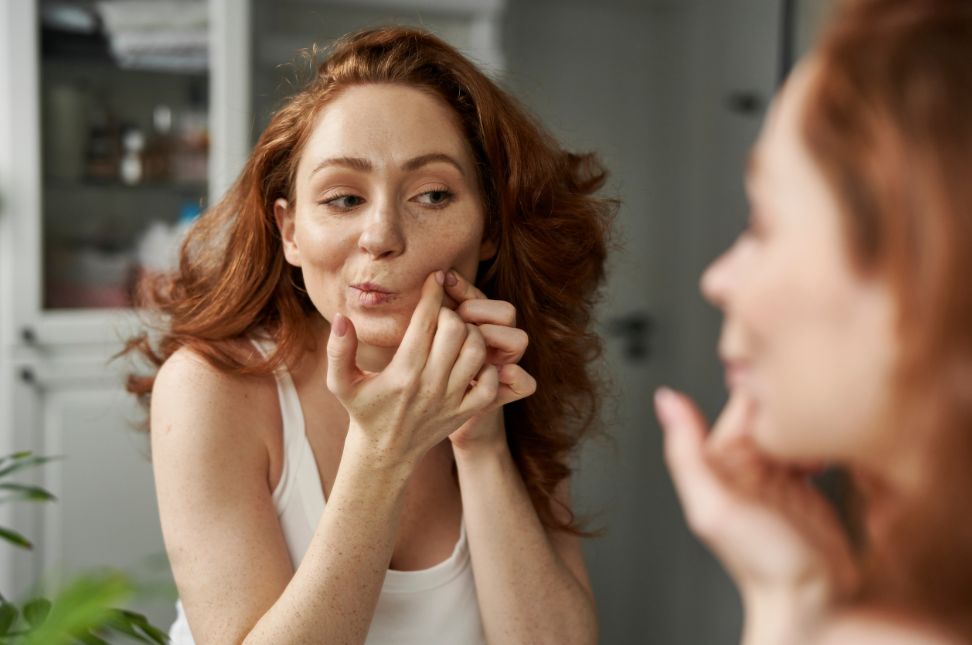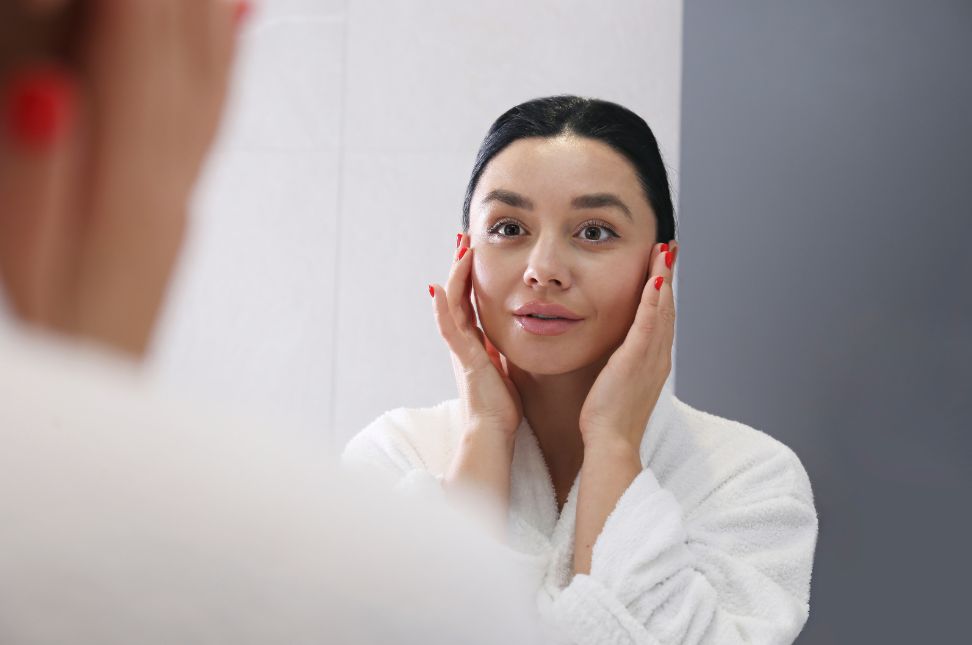“Why do I get acne in the summer?” is a common concern among many individuals. The answer lies in a combination of environmental, lifestyle, and physiological factors that contribute to the increased prevalence of acne during the warmer months. Understanding these factors can help you take proactive steps to manage and prevent summer breakouts.
Increased Sebum Production
One of the primary reasons for summer acne is the increased production of sebum, the natural oil produced by your skin. Heat and humidity can stimulate the sebaceous glands to produce more oil. This excess oil can mix with dead skin cells and clog pores, leading to the formation of acne.
Sweating and Clogged Pores
Sweating is another significant factor. While sweating helps cool the body, it can also trap dirt, bacteria, and other impurities on the skin’s surface. When sweat mixes with excess oil and dead skin cells, it can clog pores and result in acne. This is especially true if you don’t cleanse your skin properly after sweating.
Increased Exposure to UV Rays
Extended exposure to ultraviolet (UV) rays can also exacerbate acne. UV rays can cause inflammation and damage the skin’s barrier, making it more susceptible to acne-causing bacteria. Additionally, some people may experience an overproduction of sebum as a protective response to sun exposure, further contributing to clogged pores.
Use of Sunscreen and Skincare Products
While sunscreen is essential for protecting your skin from harmful UV rays, some formulations can be comedogenic, meaning they can clog pores. Heavy, oily sunscreens can contribute to acne breakouts. It’s important to choose non-comedogenic, oil-free sunscreens and skincare products to minimize this risk.
Lifestyle Factors
Changes in lifestyle during the summer can also influence acne development. Increased outdoor activities can lead to more sweating and exposure to environmental pollutants. Moreover, diets high in sugary and greasy foods, often consumed during summer gatherings and vacations, can trigger or worsen acne.
Hormonal Fluctuations
Hormonal fluctuations, which can be influenced by seasonal changes, may also play a role. Higher temperatures and increased stress levels associated with summer activities can lead to hormonal imbalances that contribute to acne.
Prevention and Management Strategies
Now that we understand the factors behind the question, “Why do I get acne in the summer?,” let’s explore some effective strategies to prevent and manage summer acne.
1. Cleanse Your Skin Regularly:
Proper cleansing is crucial to remove sweat, oil, and impurities that can clog pores. Use a gentle cleanser suitable for your skin type twice daily, especially after sweating.
2. Choose the Right Sunscreen:
Opt for non-comedogenic, oil-free sunscreens to protect your skin without clogging pores. Look for ingredients like zinc oxide or titanium dioxide, which are less likely to cause breakouts.
3. Stay Hydrated:
Drink plenty of water to keep your skin hydrated from within. Hydrated skin is less likely to produce excess oil.
4. Wear Breathable Clothing:
Choose loose, breathable fabrics to minimize sweat accumulation on your skin. Avoid tight-fitting clothes that can trap sweat and irritate the skin.
5. Maintain a Healthy Diet:
Limit your intake of sugary and greasy foods, which can trigger acne. Incorporate more fruits, vegetables, and foods rich in omega-3 fatty acids to support overall skin health.
6. Avoid Touching Your Face:
Touching your face can transfer bacteria and oils from your hands to your skin, increasing the risk of breakouts. Be mindful of this habit and try to keep your hands away from your face.
7. Exfoliate Gently:
Regular exfoliation can help remove dead skin cells that contribute to clogged pores. Use a gentle exfoliant suitable for your skin type, but avoid over-exfoliating, as this can irritate the skin.
8. Manage Stress:
Practice stress-reducing activities like yoga, meditation, or regular exercise. Stress can exacerbate hormonal imbalances and trigger acne.
Conclusion
In conclusion, the question “Why do I get acne in the summer?” can be answered by understanding the various factors that contribute to summer breakouts. Increased sebum production, sweating, UV exposure, use of certain skincare products, lifestyle changes, and hormonal fluctuations all play a role. By adopting proper skincare habits, choosing suitable products, maintaining a healthy lifestyle, and managing stress, you can effectively prevent and manage acne during the summer months. Taking these proactive steps will help you enjoy clear, healthy skin all season long.




